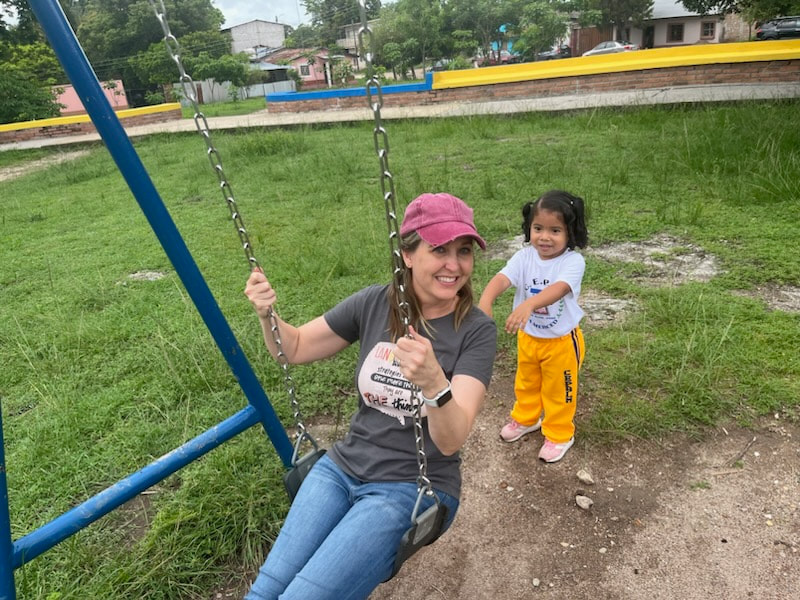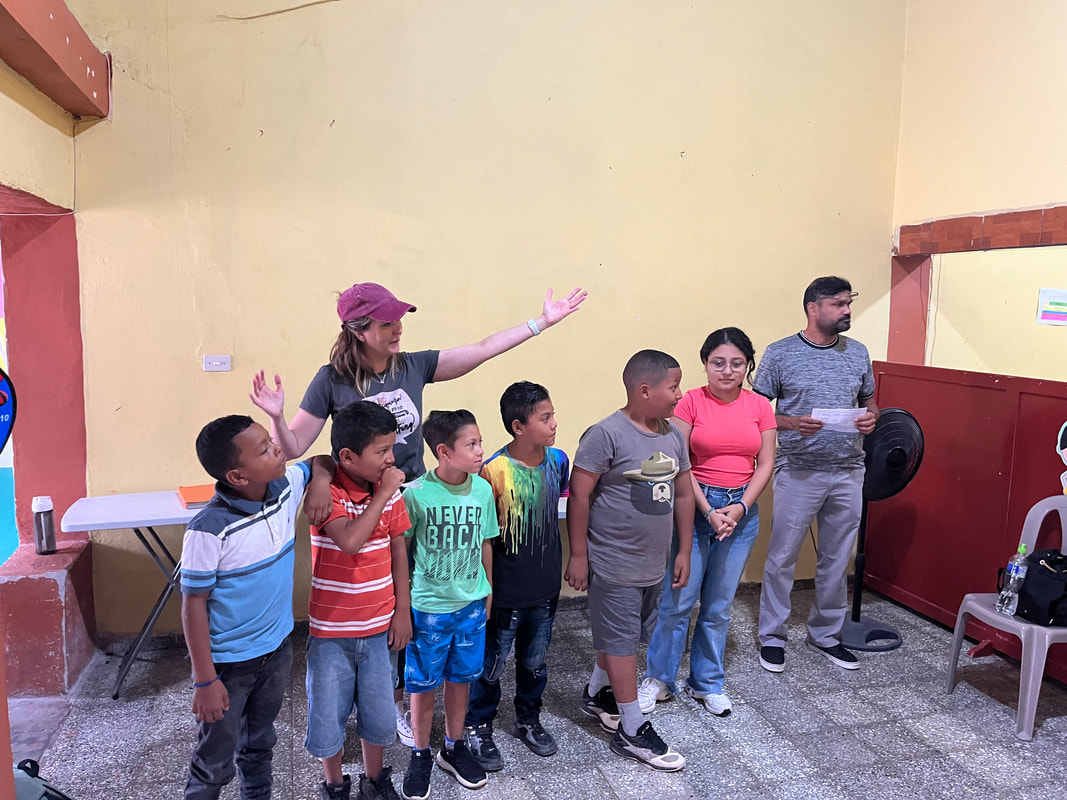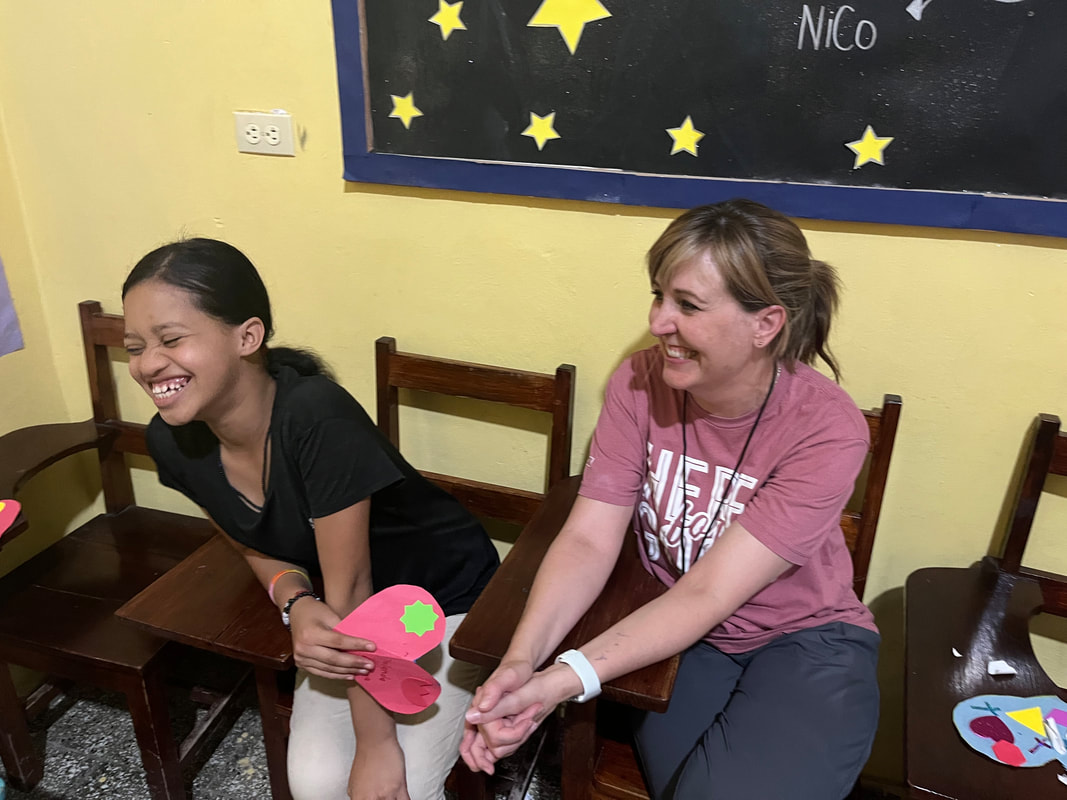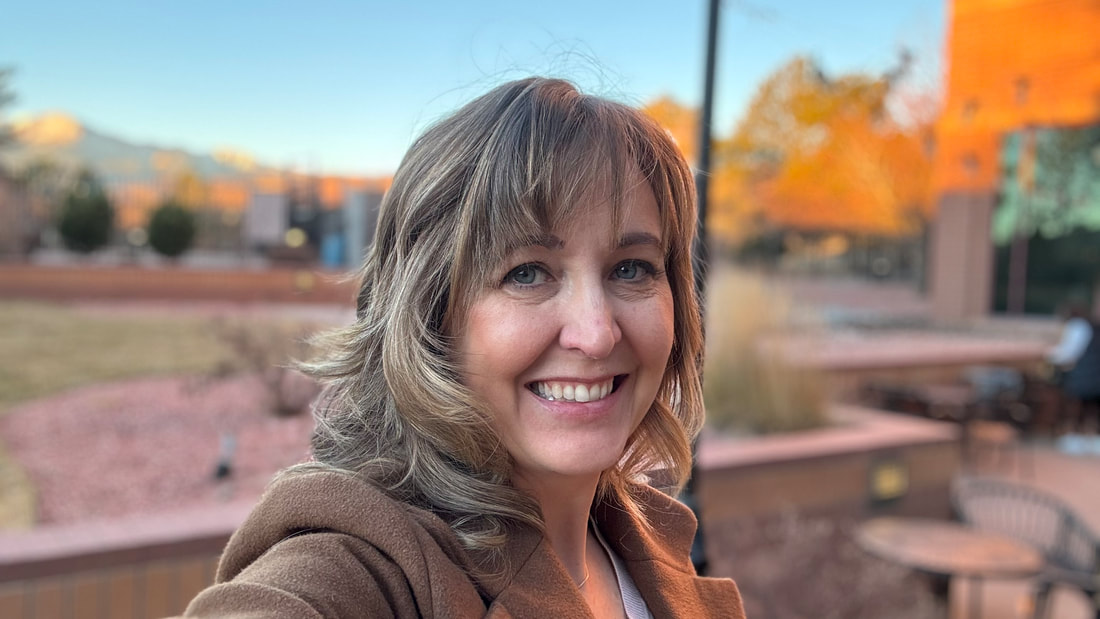|
When I was invited to visit a community outreach program in La Paz, Honduras, I jumped at the opportunity. Not only was I anxious to return to the country that felt like home, but I wanted to learn more about the educational system of some of my former students. For the past couple of years, I have welcomed immigrant students from Central America, who came to me preliterate in Spanish. I wondered why they were so behind when they had spent six years in the “sistema educativo” (public school system). For a week in July, I walked the cobblestone streets of La Paz, visiting families from the program in their casitas, playing with children on the playground, and facilitating lessons in social-emotional learning at the school. NiCo, which stands for Programa de Desarrollo Integral Niño—Comunidad (Program for Holistic Development of Children—Community) is a wrap-around program to serve the holistic needs of vulnerable children in the public school system of La Paz. Orphan Outreach, the nonprofit with whom we partnered with, describes the project this way: The children attending NiCo come from families living in extreme poverty. Most are broken families with high food insecurity and no access to clean water, electricity, and sewage infrastructure. NiCo seeks to help provide quality education and support services for children and families who are in need. Children attending NiCo have been recognized at their school not only for educational achievement but also for their strong character and leadership capabilities. (Orphan Outreach – Together We Can Restore Hope – Program, n.d.) The reason Nico was particularly interesting to me was because it partnered with the public school district to serve the needs of the most vulnerable children, and the public schools were reporting huge gains in these students’ performance. I was privileged to sit down with the Honduran directora of the program, Maria Lanza Colindres, and pick her brain about what was happening in public schools in La Paz, and what Nico was doing to support them. Here is a transcript of that interview, translated by me (with the help of Irene Zavala Lopez). Diaz: First of all, thank you for the amazing work that you are doing here! I want to let American educators know about what you are doing to meet the needs of vulnerable children, but first of all, can you tell me a little bit about the challenges you face?
Colindres: Of course. The students that we serve here in NiCo are the students who are several grade levels behind. Here in La Paz, teachers are under-resourced. They serve up to 40 students in their small classrooms, depending on the zone. In Honduras every four years the government changes, but the changes extend to the local level and even the curriculum in the public schools. In addition to these changes, there is so much staff turnover because we hire temporary teachers in the certification process, and they only stay three to four months. The bureaucracy here makes it almost impossible to submit the paperwork for certification, and the teachers must leave after four months if they aren’t certified (unless they have inside connections). But again, these connections change every four years. Diaz: Wow, that sounds very challenging. We are also having teacher staffing shortages and high turnover in the United States, but not to this level. What is the effect of this on students? Colindres: Although the government says something different, my experience is that kids are generally eight years behind where they should be in school. The Secretary of Education says that we cannot hold students back, so they are promoted even if they are not near grade level. Another problem children in La Paz work in coffee cultivation throughout the year, so they leave at inopportune times and then come back in April. All of this creates huge gaps in schooling. Diaz: How did Honduras handle schooling during the Pandemic? Colindres: All of the schools were closed during the Pandemic. We asked students to send in homework to their teachers with “WhatsApp,” but the majority of our students did not have access to this technology. Diaz: So how does NiCo meet these vast and seemingly insurmountable educational needs? Colindres: NiCo serves children in grades 1 - 6, by recommendation from the public schools. When students enter our program, we give them a diagnostic test to determine areas of deficiency. Unlike the US, Honduras does not have a special education program. Many of the children we serve here would qualify for such services. After testing, we provide personalized support and interventions for the child, based on their area of need. We move at the pace the child requires, sometimes this is very slow. Perhaps the diagnostic test reveals that the child does not know their letters, and then we begin there. Diaz: That sounds amazing. I love the personalized approach. What can you tell me about some of the progress you’ve seen? Colindres: I’ll tell you the story of one student in particular: Maria (name changed) came to us when she was in fifth grade, but she was functioning at the second-grade level academically, had problems with coordination, and was far behind in terms of her socio-emotional development. She was very withdrawn and acted more like a kindergartener than an older child. She could not write her own name when she came in. Part of the culture of NiCo is that we hold high expectations for students, but serve them with patience and respect. We also offer them the best therapy: “toda functiona con mucho amor.” We help them to change their narratives about who they are as students. Maria has been with us for four years. She can write her name correctly now. She knows her letters and is blending sounds. But the biggest difference is in her countenance: she is open and engaged with others.” Diaz: Yes! Maria has been really fun to interact with while I’m here. Speaking of changing that narrative, what is it I’ve heard all of the students say at the start of class each day? Colindres: Yo puedo, yo puedo hacerlo bien. Nadie es igual a mí. Soy única y especial (I can, I can do it well. No one is the same as me. I am unique and special). Diaz: Yes they can! Thank you for the extraordinary work you are doing to reinforce this message to vulnerable children! Comments are closed.
|
AuthorElise White Diaz is an Educational Consultant with Seidlitz Education, specializing in trauma-informed multilingual education. CategoriesArchives
July 2024
|




 RSS Feed
RSS Feed
